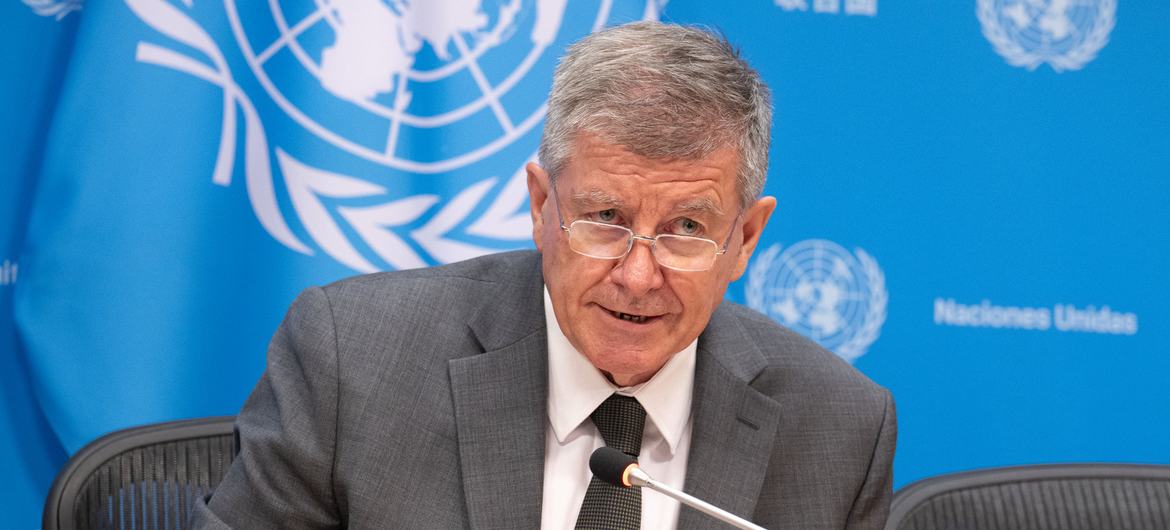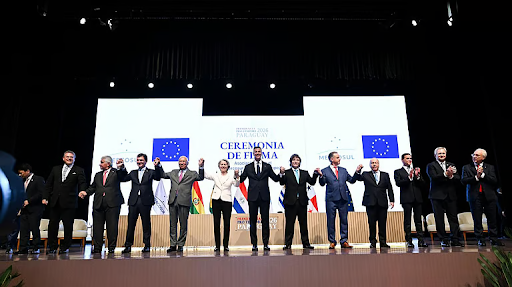



The United Nations has launched the UN80 Initiative, a major reform to improve its efficiency and impact. It involves streamlining operations, reviewing thousands of mandates with AI assistance, and realigning programs. The goal is to strengthen the UN's ability to address global challenges like conflict and climate change, reaffirming multilateralism's value.

Copyright infringement not intended
Picture Courtesy: NEWS.UN.ORG
The United Nations launches the UN80 Initiative to modernize the organization to ensure it is "fit for purpose" in a world facing complex and interconnected crises.
Launched in March 2025 by UN Secretary-General António Guterres, the UN80 Initiative is a comprehensive reform agenda designed to make the United Nations more efficient, effective, and relevant for the 21st century.
It is led by a dedicated UN80 Task Force, chaired by Under-Secretary-General for Policy, Guy Ryder.
Enhance Efficiency and Impact => To streamline operations, reduce bureaucracy, and cut down on redundant processes to make the UN more impactful.
Strengthen Multilateralism => To reaffirm the value of international cooperation and restore confidence in global institutions.
Address Global Challenges => To strengthen the UN's capacity to respond effectively to issues like conflict, inequality, climate change, and rapid technological shifts.
Ensure Financial Sustainability => To improve the UN's financial health, although officials state it is not merely a cost-cutting exercise but a move towards long-term stability.
Improving Internal Efficiency => Focuses on immediate improvements within the current structure. It involves cutting red tape, optimizing the UN's global footprint by relocating some offices to lower-cost locations, reducing minimum 20% posts in some departments where functions overlap.
Mandate Implementation Review => Comprehensive review of its nearly 4,000 active mandates and 40,000 past resolutions. This review utilizes AI tools and data analysis to identify outdated, overlapping, or redundant mandates that can be consolidated or discontinued.
Structural and Programmatic Reform => Fundamental structural changes and program realignments across the entire UN system. It examines the overall architecture of the UN to ensure its various agencies and departments work together more cohesively. Senior UN leaders have already submitted nearly 50 proposals for structural changes.
Consolidation of Entities => Proposals to merge several UN entities. A significant example is the suggestion to combine various human rights offices—such as those for Children and Armed Conflict, Sexual Violence in Conflict, and Preventing Sexual Exploitation—into a single "Office for the Protection of Vulnerable Populations".
Financial Pressures => The initiative is partly a response to a severe liquidity crisis, with the UN's regular budget owed $2.4 billion in unpaid dues against a $3.5 billion assessment for 2025. The US owes the largest amount, approximately $1.5 billion. This financial strain is expected to lead to funding and post reductions in the 2026 programme budget.
System-Wide Coordination => The reforms involve the entire UN system, not just the Secretariat in New York. Seven thematic clusters have been established to coordinate efforts across key areas like peace and security, humanitarian action, development, and human rights.
Impact on Core Functions => Drive for efficiency could undermine the UN's core work. Critics fear that merging human rights entities and cutting budgets could harm vital functions like gender equality initiatives and human rights monitoring.
Job Losses: Plan to cut posts to eliminate redundancies has caused alarm among some UN staff.
The UN80 Task Force is expected to present its proposals to the Secretary-General, with a report on the mandate review by the end of July 2025. Finally, Member States will decide how to act on the findings, through an intergovernmental process. The goal is to implement initiatives impacting the 2026 proposed programme budget.
Must Read Articles:
Pact of the Future on UNSC Reform
Source:
|
PRACTICE QUESTION Q. “The United Nations Security Council (UNSC) is frozen in the geopolitical realities of 1945”. Critically analyze and discuss the primary arguments for its comprehensive reform. 250 words |



© 2026 iasgyan. All right reserved